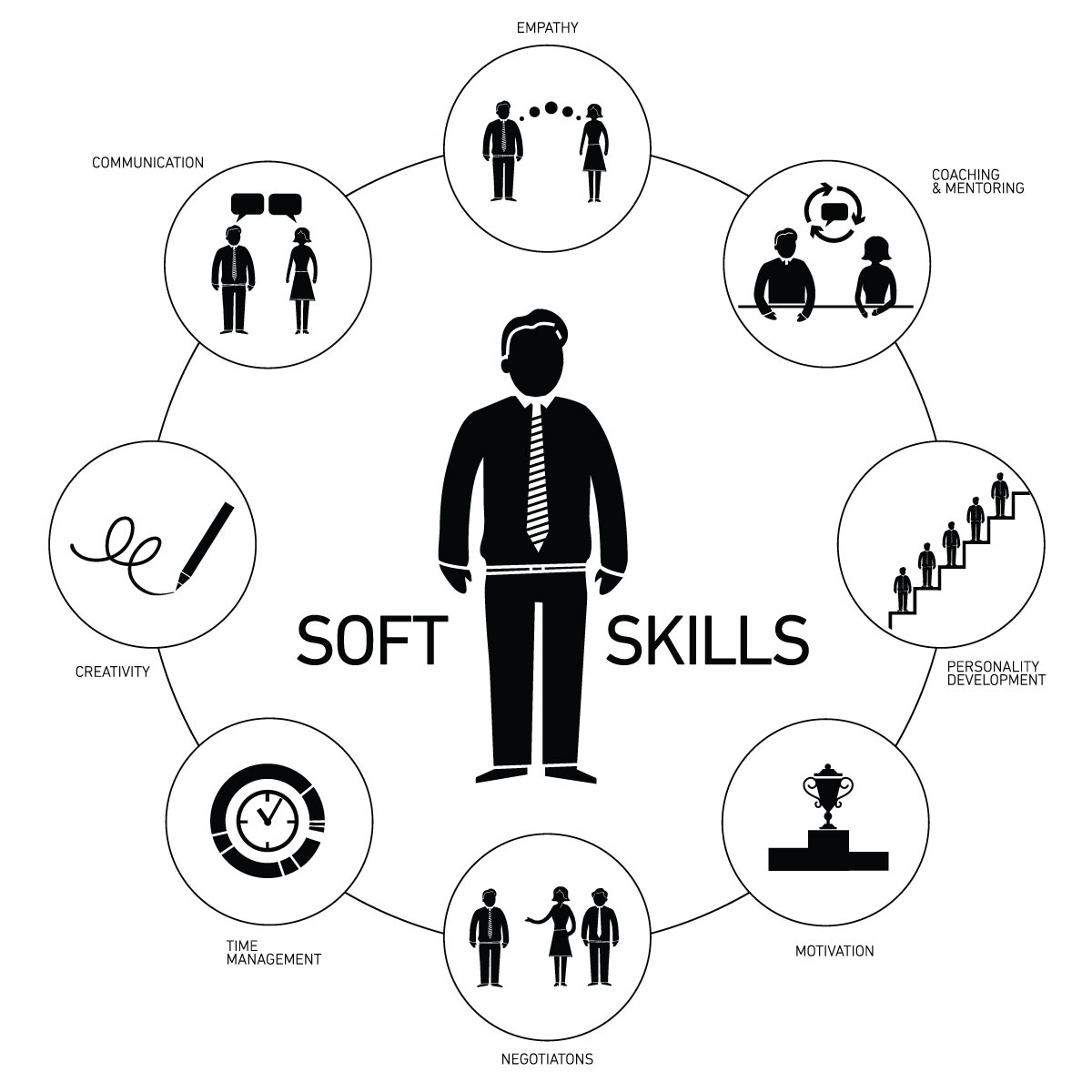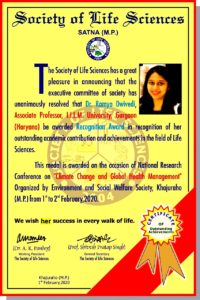INTRODUCTION: Soft skill, sometimes known as “people skills” are personal attributes that enhance an individual’s interaction with others, job performance and career prospects. Unlike hard skills or technical or occupational skills, which tend to be specific to a certain type or task or activity, soft skills are broadly applicable. There are two broad classifications of soft skills viz. personal attributes and interpersonal attributes.
Soft skills broken down under personal attributes comprise of the following:
- Optimism
- Emotional Intelligence
- Responsibility
- A sense of humor
- Integrity
- Time management
- Motivation
- Creativity
Soft skills under interpersonal abilities are as follows:
- Empathy
- Leadership
- Communication
- Good manners and etiquette
- Sociability
- The ability to teach
- Problem solving
See A comprehensive Guide for GD Preparation:

How to Prepare for Group Discussion in (2023). Tips to Win G.D.
It is often said that hard skills will get an interview but one needs soft skills to get and keep going with the job. In the initial years of one’s career, individuals need technical abilities or occupational skills may be important to get an assignment one seeks. However, when it comes to growing in an organization, it is the personality trait that matters. And this would apply more aptly in a setting where several people with similar technical expertise will compete for a position or a promotion.
Training of soft skills in our country becomes all the more relevant where the education system does not always delve into coordinated personality development. There is a lot of contradiction and argument in the industry as to whether it is possible to enhance soft skills through different modes of training and workshops especially when we already know that the person has lived with those traits all their lives. The answer to this question seems harsh although real. A student who wants to do well in his career and does not really have a choice, a reorientation of lifestyle and personal priorities becomes essential.
The concept of soft skill is not a recent concept, instead, it is a concept discussed since ancient times. Our Vedas and Upanishads enunciate how Vedantic prescriptions cab be an effective instrument for the personal transformation that automatically enhances soft skills necessary for growth.
A desire in a young professional to create a strong positive impression about the self in intellectual and social circles is paramount. Soft skills for university students should come with the intention of an all round development of their personality and not only focus on academics but train them professionally also. Inculcation of soft skills among students would ensure greater success for them across all the spheres of life. Today’s organizations and companies look for individuals who are flexible to adapt to the organization’s culture and are apt enough to establish meaningful interactions with people around.
Relevance of soft skills among students:
- For creating a healthy and productive work environment: We have to develop interpersonal skills like listening and writing that can ensure the flow of smooth and accurate instructions and information. This can guarantee a cooperative work environment with minimum levels of manageable conflicts.
- Efficiency in dealing with challenges: Hard skills help you with technical knowledge and skill building whereas soft skills as they include communication skills, etiquette and leadership skills make your adjustment better at the workplace. They make an individual capable enough to deal with challenges and problems at the workplace.
- For overall personality development: All round personality development can only be guaranteed if both the hard and soft skills go hand in hand. Thus as mentioned earlier, hard skills are not enough to bring the best in you and ensure success. Pairing technical expertise with the process involved in the implementation of the technical expertise would lead to over all personality building and growth.
- Demand of today’s time: In today’s time, the strength of an individual is assessed on both the hard and soft skill parameters. The one who lacks soft skills would not be able to compete with the demands of today’s time. Thus there should be a strong focus of the course curriculum on building and strengthening of personality by inculcating soft skills.
Conclusion: All round personality development of individuals should emphasize on the mastering of soft skills. At IILM University, there is a lot of stress on developing soft skills as a part of the course structure. There are diverse facilities initiated by the University to delve upon such skills. Some of these facilities are:
- IILM center for Emotional Intelligence: This is one of the centers that cater to provide an idea as to the significance of emotional intelligence in our lives. How relevant this is for ensuring the future success of individuals and how can we make ourselves happy and satisfied thus adding quality to our lives.
- Course curriculum: The courses offered by IILM University just do not focus on the academic growth and learning of the students. Rather it also tends to inculcate applications based learning that can be implemented and utilized when our students enter the professional world.
We offer papers like communications skills, emotional intelligence inter group relations personality growth and development that gives them an idea about the corporate setup. These courses, apart from adding on to their knowledge reservoir add on to the other aspects required for personality development example a course on communication skills makes them apt to use the power of communication during meaningful interactions. It helps them lay their point of view much more comprehensively thus ensuring them success whether it is about cracking an interview or cracking a good deal at the workplace. Similarly, the course on emotional intelligence tends to tap competencies like self-regulation, nurturing relationships etc. that helps accomplish higher order goals that one can set in life, a course on inter group relations also tends to make them understand the relevance of dynamic interactions between two or more individuals or big groups. It makes them understand the complexities of group functioning thus avoiding conflicts and ensuring teamwork while personality growth and development, make them explore, introspect and evaluate their personality strengths and virtues. It gives them an accurate understanding of themselves thus making them understand their potentialities and abilities. Thus, the emphasis on soft skills development among the student lot is the need of the hour.
References:
Govind Singh Kushwaha, Role of Soft Skill and Personality Development, Research Gate, February 2012
Barbara Cimatti, Definition, Development, Assessment of Soft Skills and their role for the Quality of Organizations and Enterprises, International Journal for Quality Research 10(1) 97–130, 2016
Barun K. Mitra, Personality Development and Soft Skills, Oxford University Press
Personality Development Video, The Economic Times and The TIMES Multimedia, 2009.
TIME magazine, Vol. 172, No. 2, 2008.




